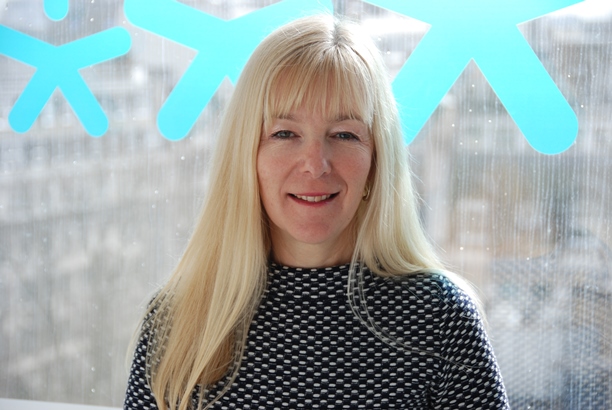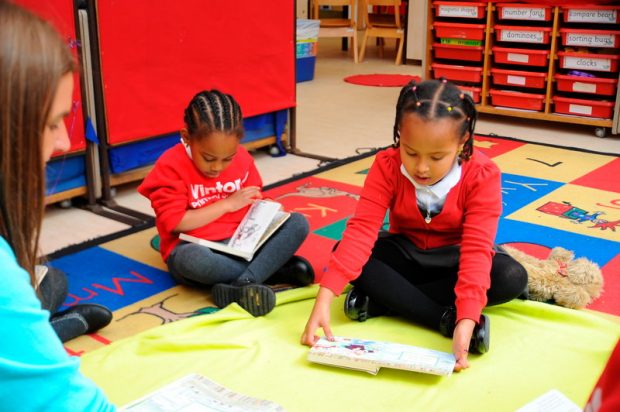
Gill Jones, our Deputy Director for Early Education, sets out how we look at early reading and phonics teaching as part of our new inspections.
As I write, many schools will already have had an inspection under the new education inspection framework (EIF). A large proportion of those are primary schools.
If you’re reading this and work in a primary, junior, infant or lower middle school, you should be aware that the new EIF includes a reading deep dive. The reading deep dive is a mandatory part of the new inspections in these schools. Inspectors will look at 7 aspects of early reading, as set out in paragraph 298 of the school inspection handbook.
If you've not looked at this section of the handbook yet, then do; it sets out what inspectors will be considering when they look at how well the school teaches children to read from the beginning of Reception.
We’ve made the early reading deep dive mandatory because it’s so important that children learn to read fluently as quickly as possible. Inevitably, fluent readers will learn more, because they can read and gain knowledge for themselves.
All inspectors have been trained to focus on the things that make the biggest difference, drawing on the evidence set out in our report ‘Bold beginnings: the Reception curriculum in a sample of good and outstanding primary schools’.
To prevent myths being created, I’ve set out here what inspectors will be looking at during deep dives into early reading. They will consider the extent to which:
- direct, focused phonics is taught every day in Reception and key stage 1
- children read from books with the sounds they know, while they are learning to read
- teachers and teaching assistants provide extra practice through the day for the children who make the slowest progress (the lowest 20%)
- all children in Year 3 and above can read age-appropriate books
- teachers instil in children a love of literature: the best stories and poems
However, we do not expect to see phonics in ‘continuous provision’ activities. This is a time to develop children’s talk, play and wider curriculum experiences. A ‘language-rich’ environment is just about talking with children, not building displays, or sticking on Post-it Notes.

I’ve been looking closely at what inspectors are finding so far when they look carefully at reading on inspection. It’s heartening to see the teaching of reading being reported on so clearly in our new-style inspection reports. Here is what some inspectors are writing in their reports about the teaching of reading:
"Leaders believe that the key to pupils’ success is their ability to read. Well-trained staff ensure the expert teaching of phonics. As a result, nearly all pupils meet the expected standard in the Year 1 phonics screening check."
"There is a well-organised system for teaching reading, which starts from the beginning of Reception."
"Teachers are ambitious in their expectations of the sounds and words that children should be able to read by the end of each term."
"Pupils told us they love to read. They spoke confidently about their favourite stories."
"Almost all the children, including the disadvantaged, were successful in the Year 1 phonics screening check. Any pupil who falls behind is given extra help to catch up."
I’m pleased to say that many schools are coming out well in reading because leaders are making sure that staff are experts in teaching reading, particularly phonics. However, some schools have been judged to require improvement because they are not teaching reading well enough. For example:
"Early reading and phonics remain areas for improvement, particularly for pupils who struggle."
"They have attempted to bring together several phonic schemes that do not match. This leads to inconsistencies from class to class."
"Pupils’ reading books are not always well matched to their reading stage. Books contain sounds they have not yet been taught. As a result, some pupils fall behind in their reading."
"There are not enough phonics experts across the staff team to help all pupils to learn to read from an early age."
"Staff try to develop pupils’ love of reading. Storytelling sessions occur daily, and these engage pupils well, but some of the books that staff read to pupils vary in quality."
At a national level, I was disappointed to see that the phonics screening check (PSC) results did not improve in 2018/19. Most concerning was that nearly a third of children from poorer backgrounds did not reach the required standard, as opposed to 15% of those from better-off backgrounds.
As Amanda Spielman mentioned in our Annual Report last year, this does not have to be the case. Some schools in disadvantaged areas help all their children learn to read well from the start. Some schools have said that this gap in the PSC between poorer and more affluent children is because of the lower levels of cultural capital among disadvantaged children. However, as we know, the successful learning of systematic synthetic phonics is not dependent on cultural capital.
Good phonics teaching will make sure that all children learn to read early, regardless of their background. It is easy for inspectors to find out if a school has a team of expert reading teachers: if the slowest progress readers in key stage 2 can read age-appropriate unseen books with fluency, inspectors know the school has made reading its priority.
I hope that with a strong focus on the teaching of early reading in the EIF, it will lead headteachers to pay greater attention to ensuring that every child learns to read in their school.
Gill Jones is Ofsted's Deputy Director, Early Education. Follow Gill on Twitter.
Keep up-to-date with news at Ofsted by signing up for email alerts. You can also follow Ofsted on Twitter.
4 comments
Comment by malika posted on
Thanks for sharing good .
Comment by Jane Fisher posted on
To Gill Jones,
There is no mention, in this article about how you look at the provision of early reading skills and getting the foundations right for learning and teaching phonics as part of your new inspections of Nursery Schools, a most important part of Early education. There is a huge amount of knowledge and skills children need to acquire before the formal teaching of phonics. Please would you clarify what inspectors would consider best practice in a Nursery School and what inspectors will be looking for.
Thank you
Comment by External Relations posted on
Thanks Jane. Getting the foundations right is very important and this is something we look at closely in our early years inspections (whether school-based nurseries or private provision). Developing children’s communication and language is vital in preparation for learning to read. Inspectors will ask staff what they read to children; the choice of stories, rhymes and poems and the songs they sing to develop children’s vocabulary. They will also ask staff how they encourage children to talk, with adults and with each other and about what. We do not expect to see phonic lessons in pre-reception settings. We do expect staff to be teaching the early years foundation stage (EYFS) curriculum in a well-sequenced way that gives children the foundations they need for the rest of their schooling. This is set out in more detail in our school inspection handbook, paragraphs 301 to 306, and for private nurseries, our early years inspection handbook.
Comment by Amanda Birch posted on
As a Reception Class teacher it would be reassuring to think that nurseries were expected to teach/expose children to Phase 1 phonics in their setting to encourage listening skills and the ability to distinguish sounds in readiness for Reception.